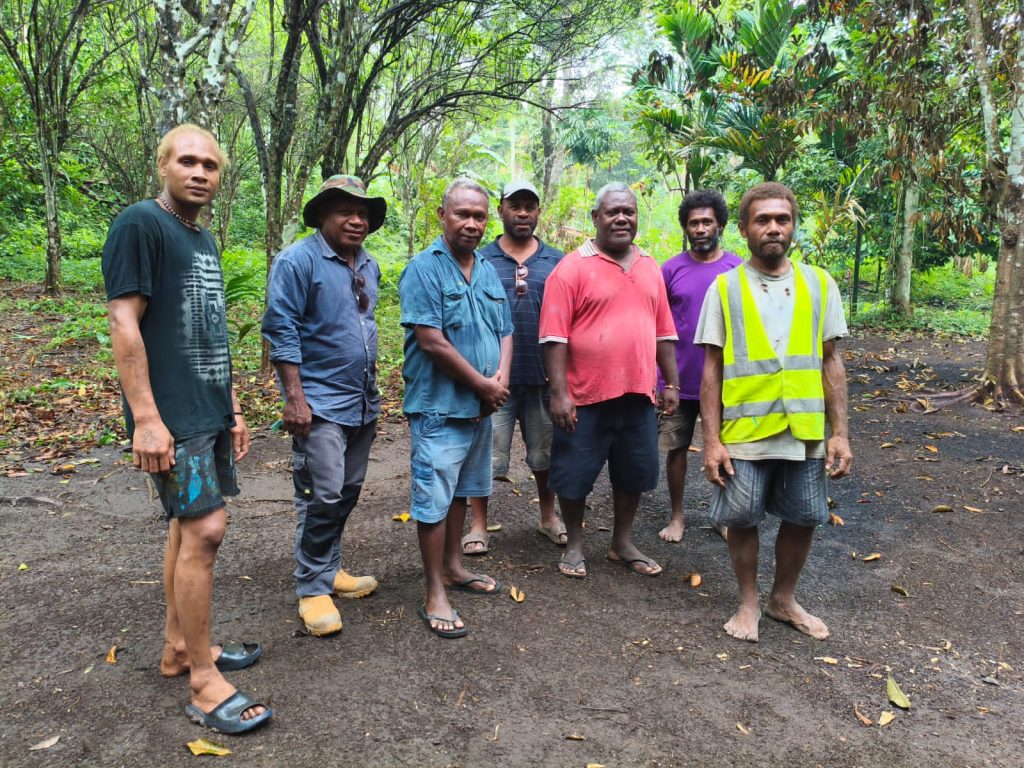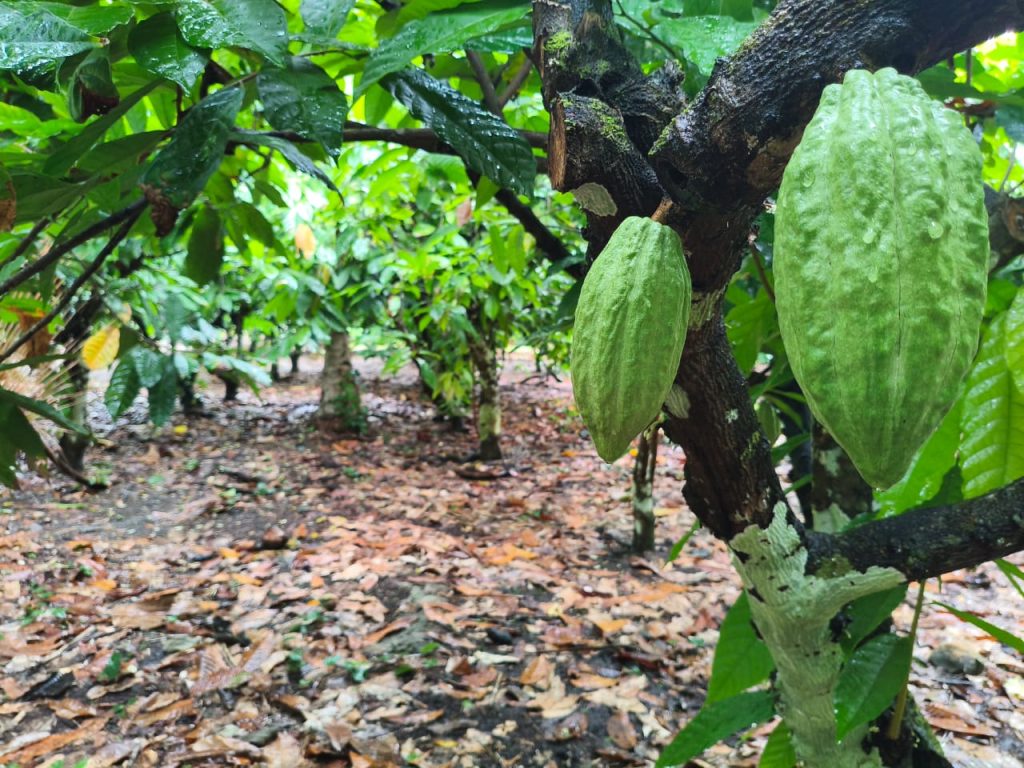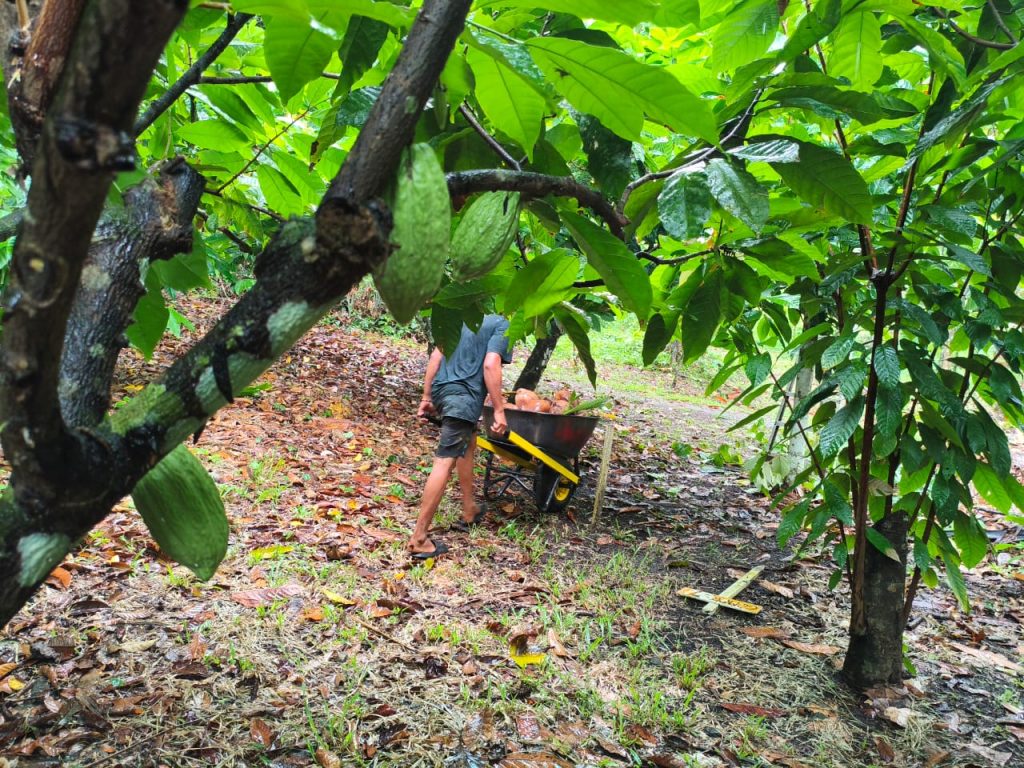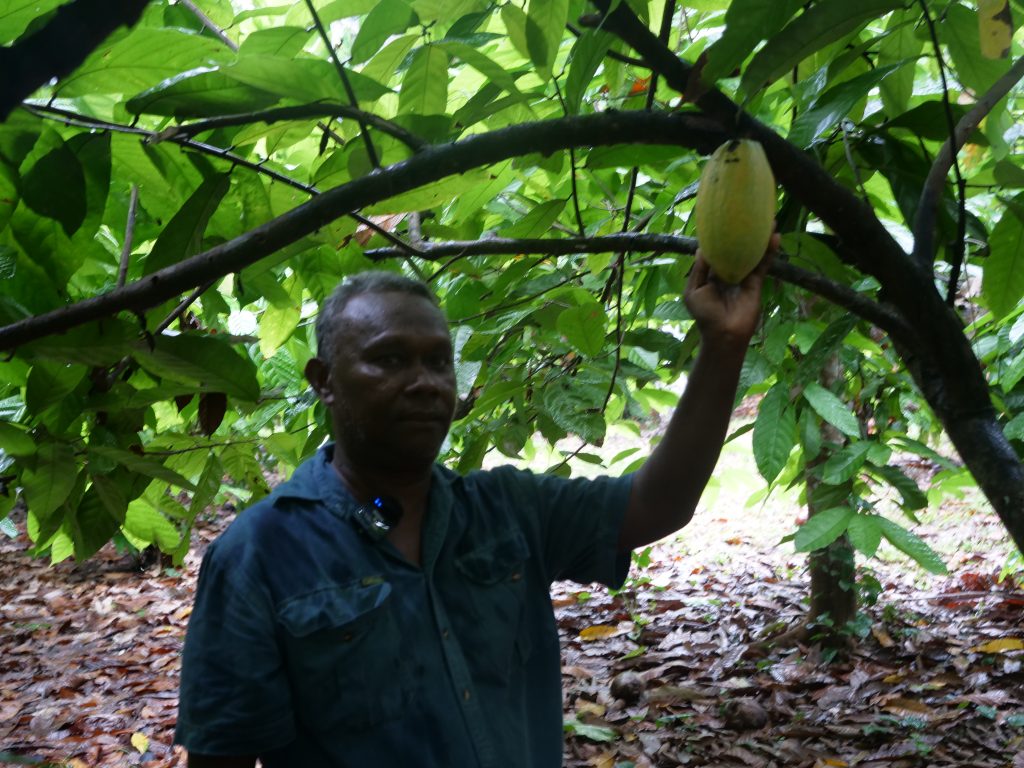Government through the Ministry of Agriculture and Livestock (MAL) is stepping up efforts to revive two of the Solomon Islands’ most important agricultural commodities — copra and cocoa — through replanting, rehabilitation, and farmer-focused training programs.
Roy Timothy, Chief Field Officer and Extension Cash Crop Coordinator at MAL told Solomon Star following a visit to a cocoa farm at Aruligo, North West Guadalcanal last week, that boosting productivity in these sectors is a top government priority but admitted significant challenges remain.
“For copra, replanting is the only viable option to restore productivity,” Timothy told the Solomon Star.
“Most of our coconut palms are aging and past their peak, producing fewer nuts as they reach the end of their natural lifespan.”
To tackle the decline, the Ministry is promoting a national replanting initiative. Farmers are being guided to select healthy, high-yielding coconuts aged between 20 and 40 years, with seedlings taking about 17 months before planting.

In contrast, cocoa farming offers a more sustainable path. Rather than full-scale replanting, rehabilitation is being emphasized through pruning, soil improvement, pest control, and grafting techniques such as top working.
“Cocoa trees can be rehabilitated. This allows farmers to maintain productivity without the high costs of starting over,” Timothy explained.
The Ministry is also using Participatory Action Research (PAR) to directly involve farmers in trials, helping them adopt new techniques and build experience-based knowledge.
Early results from provincial projects show promising improvements in yields and bean quality.
To strengthen skills nationwide, MAL will host a week-long training for provincial project coordinators, focusing on nursery management, plantation care, and knowledge transfer to farmers.
Timothy said these initiatives are part of a broader strategy to rehabilitate aging plantations and secure the livelihoods of thousands of Solomon Islanders.
With rising demand for quality cocoa and copra globally, he stressed the importance of laying “the foundation for a more sustainable future” for the country’s agricultural economy.
By George Maelagi
Solomon Star, Honiara












